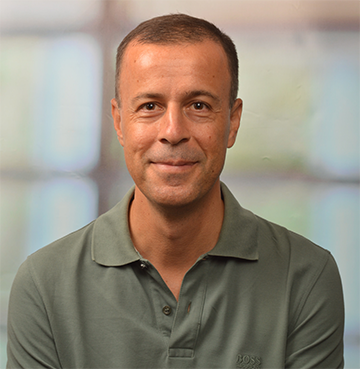
José M. Medina
In this installment of Senior Member Insights, OPN talks with José M. Medina, an optical engineer in the automotive lighting sector and color engineer for automotive metallic coatings. Medina received his M.Sc. and Ph.D. in physics at the University of Granada, Spain. Before his current work as an optical engineer, he was a professor ayudante doctor at the Miguel Hernandez University, Spain, a postdoctoral researcher at McGill University, Canada, and a research assistant professor at the University of Minho, Portugal.
Medina’s expertise has focused on different aspects related to applied optics, color vision and colorimetry in both academia and industry. He has used multidisciplinary approaches by leading different projects—from human color vision and mathematical models based on information theory and statistical physics to the application of multispectral imaging methods for investigating structural coloration in biological tissue and automotive top exterior metallic finishes.
What first interested you in pursuing science?
The curiosity and admiration for describing ordinary things by using numbers and rules that become laws and can be used in many cases.
What aspect of your current work do you find the most interesting or exciting?
In lighting systems, I find the possibility of introducing innovative tools based on physiological optics and colorimetry to describe better human behavior, such as in driving safety, very interesting. This reduces the cost expenses and helps to design better optical instrumentation.
What tips for successful networking do you have for early-career professionals?
Although this is currently more difficult due to the pandemic and is now restarting, I prefer face-to-face first contacts in national and international congresses.
What professional resources do you rely on to stay active and engaged with your field?
I am usually reading both technical and academic papers in related fields. Although time-consuming, it is fundamental to be critical about the results and examine alternative points of view that can complement your job activity, research, etc.
What’s the best career decision you’ve ever made, and why?
I do not have a special one. Every decision is usually imperfect and has pros and cons.
Describe a major turning point in your career. Was there a specific action/accomplishment that got you there?
After finishing my Ph.D., I traveled to the University of Toronto in Canada to learn directly from Kenneth Norwich and Willy Wong about certain applications of information theory to sensory perception.
What is one piece of advice that you wish you were given as a student/early in your career?
When I was early in my career, I wish someone had told me to find a good supervisor/mentor who is not interested in filling their CV for a personal academic examination or mainly dedicated to administrative duties.
How important are leadership roles in career development, and how do you hone your leadership skills?
This is close to metaphysics. I think leadership is not innate to certain individuals, but it needs to be learned in different scenarios. A good leader should be at least patient. They should be able to listen to others and have a good capacity for analysis to understand what is the bulk in multiple situations.
At this point in your career, what are you most looking forward to next?
Let me dream—I am interested in a unified physics-based theory of the mammalian visual system, from the retina to the cortex, linking individual neural properties with emergent scaling patterns in visual perception, across animal species and in everyday tasks.
If you weren’t in the sciences, what would be your dream career?
A bohemian musician playing the bongos like Richard Feynman, the violin like Albert Einstein, or the guitar like Paco de Lucía.
